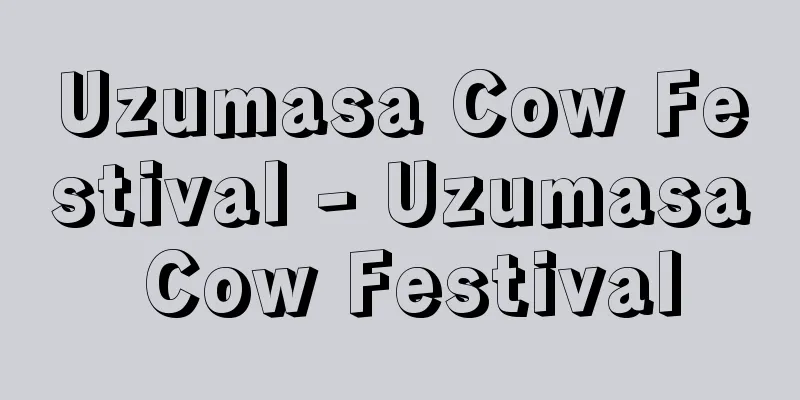Three Tenement Houses - Sangenagaya

|
Rakugo. An adaptation of a Chinese short story, the original story is "Hao Jing" from "Shofu." A similar story also appears in the 1826 (Bunsei 9) rakugo book "Kikan no Kakigane." It has been performed since the Edo period and is also known as "Kusunoki Unpei." There are three houses connected together, with the concubine of retired pawnbroker Iseya Kan'emon in the middle, and at either end, the foreman of construction workers Masagoro and swordsmanship teacher Kusunoki Unpei Masakuni. At Masagoro's house, the young men were constantly fighting, and at the dojo, the rough training continued until late into the night. The concubine screamed at the noise and begged her husband to move, so Isekan calmed him down by saying, "This place is being held as collateral, so I will make both of the neighbors move out soon." When Masagoro heard about this, he consulted with Kusunoki sensei. First, Kusunoki decided to move, but Isekan threatened to hold a three-day senbon match to raise the money, and then Masagoro also said he wanted to hold a flower party to celebrate his move, and each of them extorted money from Isekan. "Hey, boss, you two say you're moving tomorrow morning, but where are you moving to?" "I'll go to your house, and you'll move to mine." It is one of the great Edo rakugo stories with many characters and rich variety, and although it is a difficult piece for the performer, it is a masterpiece that is full of the fun of rakugo. It is a specialty of the 5th generation Yanagiya Kosan. [Kazuo Sekiyama] Source: Shogakukan Encyclopedia Nipponica About Encyclopedia Nipponica Information | Legend |
|
落語。中国の小咄(こばなし)の翻案で、『笑府(しょうふ)』の「好静」が原話。1826年(文政9)の噺本(はなしぼん)『腮(あご)の懸鎖(かきがね)』にも同種の話がある。江戸時代から口演されたもので、別名『楠運平(くすのきうんぺい)』。棟続きの3軒の家があり、質屋の隠居伊勢屋勘右衛門(いせやかんえもん)の妾(めかけ)を真ん中に、両端に鳶頭(とびがしら)の政五郎と剣術の先生楠運平正国が住んでいた。政五郎の家では若い者の喧嘩(けんか)騒ぎが絶えず、道場では荒っぽい稽古(けいこ)が遅くまで続き、そのやかましさに妾は悲鳴をあげ、旦那(だんな)に引っ越しをせがむので、伊勢勘は「ここは家質(かじち)にとってあるから、そのうち両隣を立ち退(の)かせる」となだめる。それを知った政五郎は楠先生と相談。まず楠が移転することになったが、その費用捻出(ねんしゅつ)のため3日間の千本試合をするといって脅し、次に政五郎もやはり引っ越しのため花会を開きたいといって、それぞれ伊勢勘から金をせしめる。「おい頭(かしら)、2人とも明日(あす)の朝には引っ越すというが、いったいどこへ越すんだ」「あっしが先生のとこへ行き、先生があっしのうちへ越します」。登場人物が多く、変化に富む江戸落語のなかでも大物の一つで、演者にとっては難物であるが、落語のおもしろさが全体にあふれる傑作。5代目柳家小さんの十八番。 [関山和夫] 出典 小学館 日本大百科全書(ニッポニカ)日本大百科全書(ニッポニカ)について 情報 | 凡例 |
<<: Three words and two beats - Sangennhik
>>: Sangenshusogaku - Principal Three-stringed Instrument
Recommend
Sea taste - Kaishu
...Most of the town area is covered by forests an...
ICPC - ICPC
…The ICPO is an international organization for mu...
Gitanjori - Gitanjori
…This is a representative collection of poems by ...
Vincenzo Gioberti
Italian philosopher and politician. As a priest o...
isotactic
...That is, as shown in Figure 6, if the C-C bond...
Iarysus - Iarysus
…It is the largest island in the Dodecanese (Dode...
Nuzi (English spelling)
An archaeological site located about 16 km southwe...
Andhra tribe - Andhra tribe
…It can also refer to art related to the Satavaha...
Ako
[1] A place name in the southwestern tip of Hyōgo ...
SDS (Student Movement)
... In this environment, student organizations in...
Dietmar von Aist (English spelling)
...On the other hand, the driving force behind th...
Reform of the sect - Shumon atarame
This system was established by the Edo Shogunate u...
Mr. Aihara
...There are various branches of samurai who were...
nephridium
…The kidney is an excretory organ common to all v...
Mizogoi (Mizogoi) - Japanese night heron
A bird of the Heronidae family in the order Ciconi...









